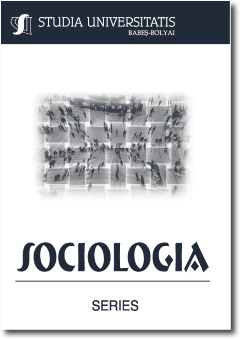TRANSNATIONAL MIGRATION AND ROMA SELF-IDENTITY: TWO CASE STUDIES
TRANSNATIONAL MIGRATION AND ROMA SELF-IDENTITY: TWO CASE STUDIES
Author(s): Gabriel TrocSubject(s): Social Sciences
Published by: Studia Universitatis Babes-Bolyai
Keywords: Roma self-identity; Gabor Roma; Ursari Roma; transnational migration; traditionalism; Romania.
Summary/Abstract: The article challenges the received wisdom that Roma groups, because of their presumed static traditionalism, always fail to integrate in mainstream societies and to follow, like other groups, the steps to modernization and to healthy community development when their lives' circumstances are pressing for change in these directions. This view, present both in academia and outside of it, which makes Roma an everlasting exceptional case, is based on a particular understanding of Roma ethnicity, that is concentrated in Roma culture, or life-style, which is viewed as unusually conservative and resistant to change. The article deconstructs this perspective through a comparative analysis of two traditional Roma communities from Romania, which, due to the constraints and opportunities associated with transnational migration, are in a rapid process of social change and communities’ adjustments. These transformations are ethnographically documented with the aim of clarifying which are Roma-specific and which are proper to other ethic groups in a similar situation. The defended argument is that Roma may indeed have particular responses to modernizing circumstances; however, these are not determined in the first place by an everlasting cultural specificity which is preserved against all odds (in fact the contrary is true - central values and patterns of social action of the groups are deeply affected in the process), but mostly by the groups’ particular social histories, their preserved archaic social relations, and the particular racially-rooted discrimination against them in Europe. Considering the economic relative success of the researched groups, as well as the changes in their values and ways of living, but also their group-focused image of change, Roma traditionalism is viewed not as an obsolete survival from the past, but as an adaptive life-style, which provides them with a successful community development and an adequate integration in today's neoliberal societies.
Journal: Studia Universitatis Babes-Bolyai - Sociologia
- Issue Year: 57/2012
- Issue No: 2
- Page Range: 77-100
- Page Count: 24
- Language: English

